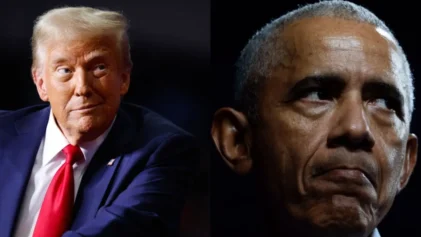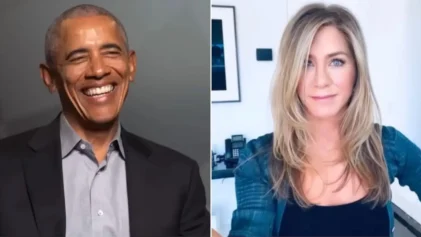Now that Senate Republicans have used the filibuster to block passage of a Democratic bill to raise the minimum wage, an issue that has widespread public support, President Obama made it clear that it will be a major midterm election concern, urging Americans to “get fired up, get organized, get your voices heard.”
After the minimum wage legislation fell six votes short of the 60 needed to overcome the filibuster, Obama appeared at the White House to make a direct appeal to the American public, who polls show is strongly in favor of a minimum wage increase.
“By preventing even a vote on this bill, they prevented a raise for nearly 28 million hardworking Americans,” Obama said, drawing on estimates of economists. “If there is any good news here, it is that Republicans in Congress don’t get the last word on this issue or any issue. You do, the American people, the voters.”
Democrats are hoping to use the issue as a major wedge against Republicans in November to help them hold on to the Senate. When adjusted for inflation, the current rate of $7.25 is about $2 less than the peak of the minimum wage in 1968, meaning it actually has been declining over time in terms of spending power.
It is an especially personal issue for people of color, who would see their wages increase by a total of $16.1 billion — $5.2 billion for Blacks ,$2.4 billion for Asians and $8.2 billion for Latinos.
Vanessa Cárdenas of the Center for American Progress points out that a total of 6 million workers would be lifted out of poverty if the minimum wage were raised to $10.10 — 60 percent of them people of color. While Blacks, Asians, and Hispanics represented 42 percent of minimum-wage earners in 2013, they made up just 32 percent of the workforce.
Not only would a raise in the minimum wage benefit people of color, Cardenas says it would also benefit the overall economy.
“It would reduce government spending, as fewer people would need to rely on programs such as SNAP, producing $46 billion in savings over 10 years,” she writes at the American Progress website. “Workers would also have more money to spend on basic needs, which would in turn give businesses more customers, stimulating the economy and increasing demand for additional workers. Businesses understand this, which is why the majority of small businesses in the combined retail and restaurant industries support an increase in the minimum wage. In fact, more than 80 percent of small businesses already pay their employees above the minimum wage.”
When the ABC News/Washington Post poll earlier this week showed historically low job approval numbers for Obama, it also showed that the public was overwhelmingly supportive of the Democratic position on raising the minimum wage, by a margin of 49 percent to 33 percent.
In fact, the president already signed an executive order in February setting a minimum wage of $10.10 per hour for workers under federal contracts. The executive order is intended to cover people who perform janitorial, kitchen work and other low-wage services on behalf of federal contractors, covering roughly 250,000 workers. The measure would also include protections for the disabled.
In their opposition, Republicans have been leaning on a February report from the independent Congressional Budget Office (CBO), which predicted that a hike to $10.10 would reduce total employment by around 500,000 workers, or 0.3 percent.
The CBO report also said the minimum wage rise would increase earnings for more than 16.5 million people by 2016 and lift 900,000 people above the poverty line. But its unexpected conclusion that a $10.10 minimum wage would lead to half-a-million fewer people working has received more media coverage than any other finding, and provided Republicans with what they believe is a strong economic case for blocking the increase.
In the report, the CBO did acknowledge that its calculation is an estimate, which means actual job losses could range from “very slight” to as many as 1 million positions.
“The increase in the minimum wage would have two principal effects on low-wage workers,” the CBO said in the report. “The large majority would have higher wages and family income, but a much smaller group would be jobless and have much lower family income.”
While Democrats seized on the numbers lifted out of poverty as a reason to embrace the proposal, the White House took the unusual step of disputing some of the CBO analysis.
In a conference call with reporters, Jason Furman, chairman of the White House’s Council of Economic Advisers, said that the office’s estimate of the potential lost jobs might be too high, according to the New York Times, which quoted Furman as saying that a finding of no effect on jobs would be a “perfectly reasonable estimate.”
The analysis does not reflect “the consensus view of economists,” he said. “Sometimes, you have to have respectful disagreement.”
Lawrence Katz, an economist from Harvard, told the Times that the budget office had used “a lot of off-the-shelf estimates” for the jobs effect. He said if the CBO had focused on findings from higher-quality studies, it would have found a smaller or negligible impact on total employment.
To conservatives, however, the potential loss of 500,000 jobs was enough for them to feel vindicated by the report.
“Raising the minimum wage could destroy as many as one million jobs, a devastating blow to the very people that need help most in this economy,” said Sen. Mitch McConnell of Kentucky, the minority leader, according to the Times. “If and when Democrats try to push this irresponsible proposal, they should be prepared to explain why up to a million Americans should be kept from having a job.”


